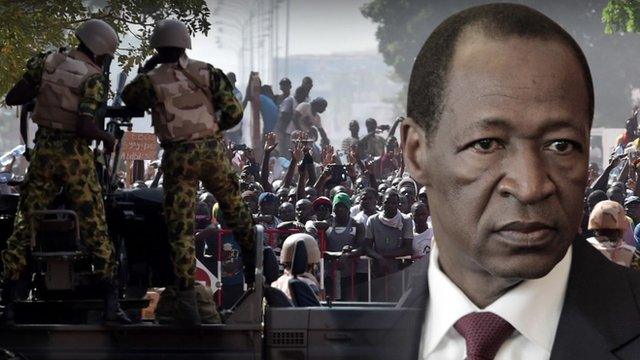Burkina Faso crisis: Voices from Ouagadougou
- Published
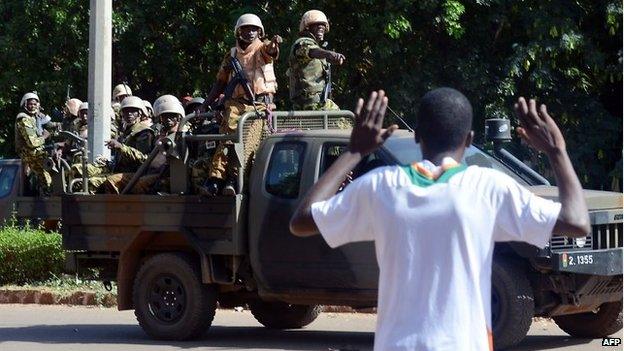
Soldiers fired shots at the national television headquarters, forcing protesters to disperse
The situation is tense in Burkina Faso's capital, after demonstrators protested against the army and soldiers fired shots near the state TV station.
The BBC's Laeila Adjovi has been speaking to people on the streets of Ouagadougou.
'Country in chaos'
Protester Amadou Yamiro: "This morning we came out, because up until now the situation is not clear. We still don't have a leader for our country. We don't want the army to be in power, especially the special presidential regiment.
We went to the national TV to try to understand what is going to happen, and while a colonel was reassuring us, some troops arrived and started to shoot, and we are told it was the presidential regiment again, the same ones that shot people [during unrest] on the 30th [October], the ones that killed many people.
We have a message for our security forces: if the army don't take responsibility, the presidential regiment is going to put chaos in this country. The presidential guard with [transitional leader Lieutenant Colonel Isaac] Zida, will put this country into chaos."

'Angry at the opposition'
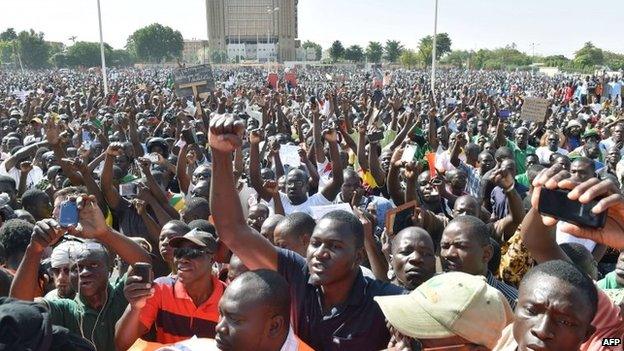
Thousands of protesters rallied against the military
Protester Franck Aitchedji: "I am angry at opposition parties. Last night they told us to come out and protest this morning at eight.
I had things to do you know, I have a family to feed, I have five kids. But still I came out, but they did not have anything to say. I had to go home and try to get some news, so they could have just gone and talked on the local radios then.
In all our families, there are problems, but when things get hot, we want to see the head of families. Where are they now? Even if they are threatened, even if they have problems, they should be there with us on Revolution Square [a popular name for the capital's square, Place de la Nation].
A political struggle is a fight to change the balance of forces. If the military know they have troops, then political parties know they have militants.
So they should have been here with us and we would have marched together towards the presidential palace, and that way, [Col] Zida would have known that they are people to back the opposition.
But if opposition leaders stay home, if they are nowhere to be found, how will they deal with the power struggle?
Today, we are angry at them, because they are the ones who made this possible for the military. But we, the people, we won't be silenced: You can walk on the testicles of a blind man for a long time, but one day, he will come back at you with his cane."

'They beat me'
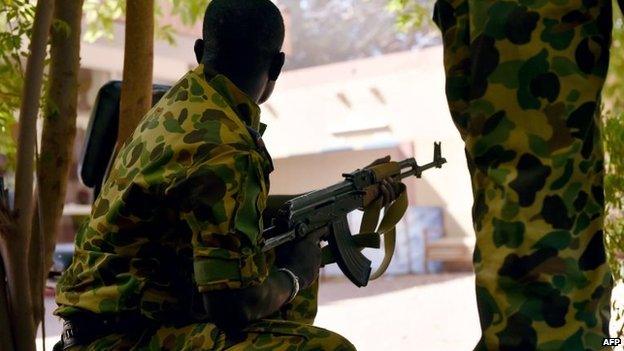
The military moved protesters from the state TV station and the capital's main square
Another protester, who did not wish to be named, said he was in the state TV compound when shots were fired, and was attacked by soldiers. He said he was beaten on his back and arm.
"The military came, and they fired shots in the air. Almost 10 military vehicles arrived, and they shot in the air. We lay on the ground. Then they got in, and went around the building to beat us.
Three people beat me. There were a lot of us, maybe hundreds of people in there, and we all got beaten. Some fled, climbed the wall and went to hide."
- Published2 November 2014
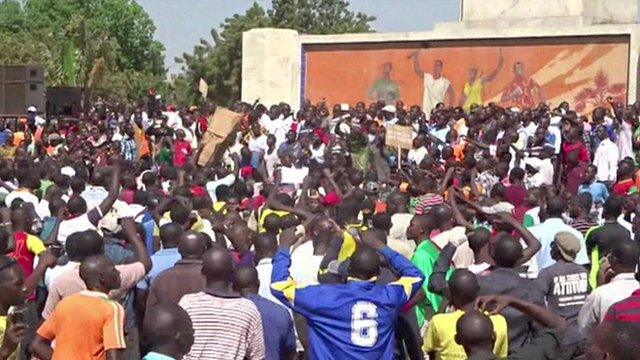
- Published2 November 2014
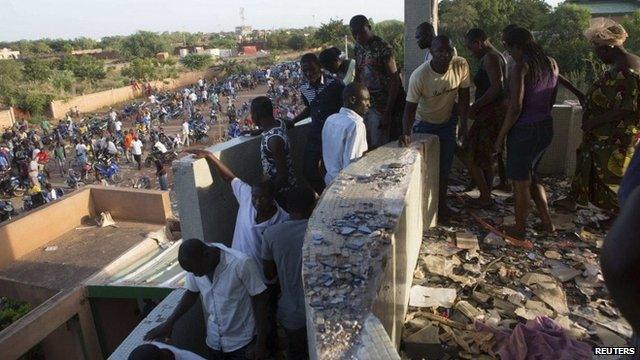
- Published31 October 2014
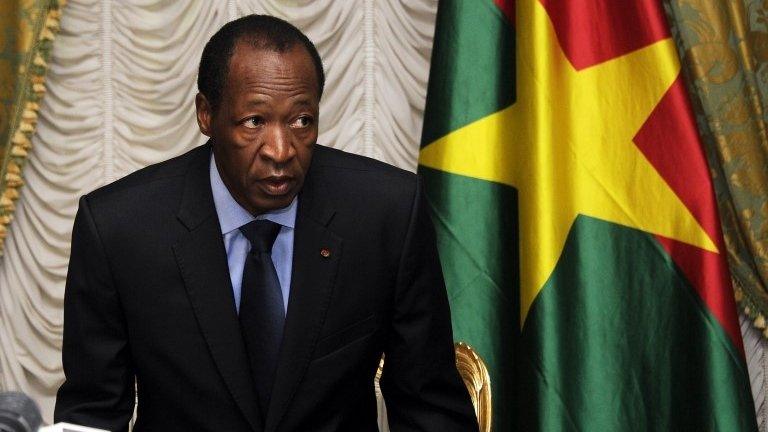
- Published31 October 2014
